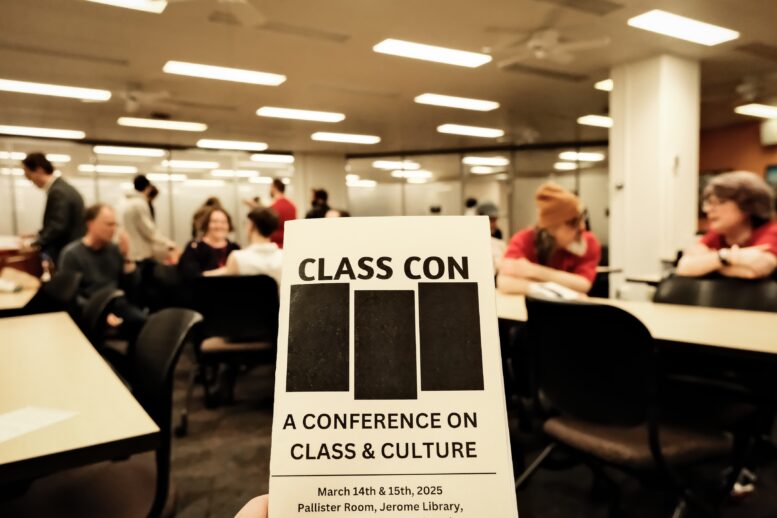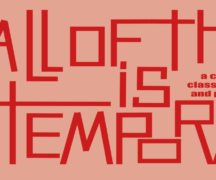By JULIE CARLE
BG Independent News
Class Con 2025 at Bowling Green State University is more than a conference; it’s a community of like-minded thinkers who believe in the connections between class and culture.
For organizers John King and Haley Shipley, both American Culture Studies graduate students from working-class backgrounds, the topic and conference are personal. Three years ago, they decided to organize a conference about class when they felt discouraged from studying class for their own projects. Their goal? To draw attention to the discipline and the broader need for class consciousness.
They pointed out that the conference they started three years ago as a small local event to talk about class in cultural studies has grown into a global event in 2025 with presenters from around the world.
The first Class Con in 2023 was a local conference with a couple of dozen presenters. This year, there were 44 presenters from China and Turkey, as well as multiple states across the U.S., and nearly 100 daily attendees, virtually and in person.
“We knew that there were plenty of people out there that felt that class studies needed to be a part of cultural studies and who did this work,” King said. “We just had to find them and create our own community, and the community was just waiting to come together.”
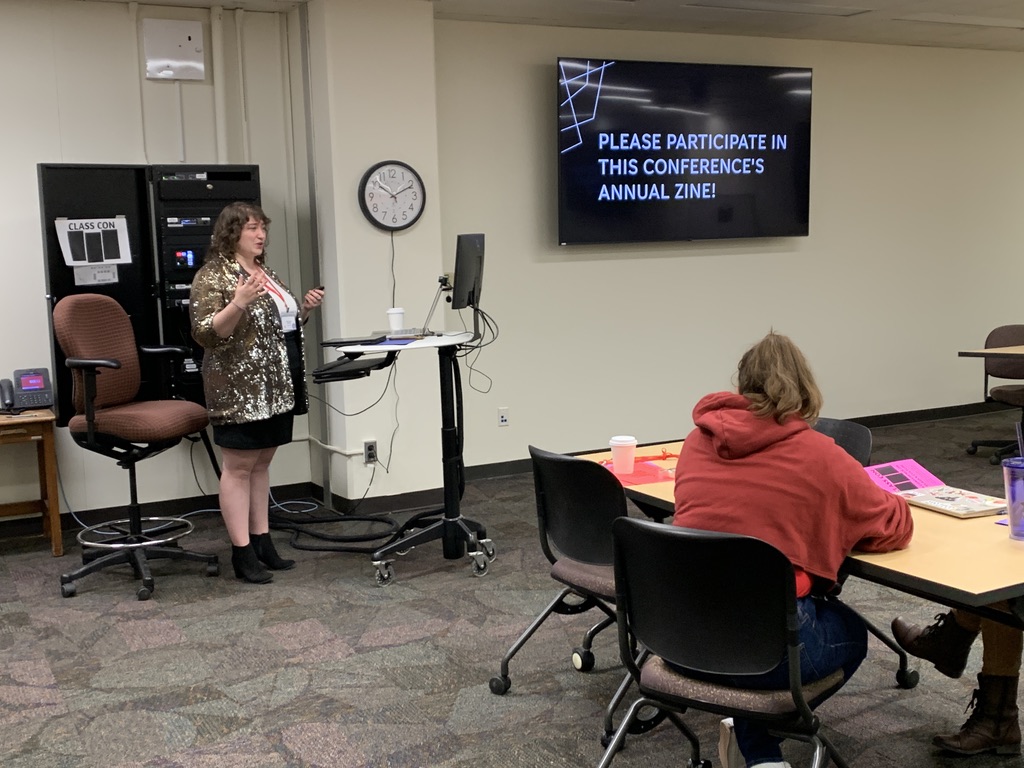
Class Con offered the community “a weekend dedicated to understanding how class is intrinsically linked to all of the words and phrases that are currently being discouraged and censored within and by the American government,” Shipley said. “While ‘socioeconomic’ may be on this list, class is not. It feels like a loophole that we can have this conference while DEI offices and events are being closed and cancelled on campuses around the country. It only proves that what we are doing here is important.”
This year saw an expanse of topics, covering a wide range of topics related to class, beyond just education and government. Presentation topics included music and literature, class and TV, education, film, comics and anime, television, society, Dr. Who, politics, and science and technology.
Class and TV
Becca Cragin, associate professor of popular culture who teaches a course on “Race, Class and Gender,” often uses television shows to address the issues from an intersectional perspective.
“We’re looking for the likely social meaning. … What would most audiences or various sub-audiences likely take away from the text?” she said during her session about Class and TV. To understand the social meaning requires looking at the style in which the context is told in a television show. Style might include the music, lighting, feel and tone.
For example, If Florence Henderson, who played Carol Brady in The Brady Bunch, had been chosen to star in the show Roseanne (and played by Roseanne Barr), “The show would have had a very different meaning,” Cragin said.
Sarah Hobson, BGSU graduate student and a member of the Class Con organizing committee, talked about how the concept of class is explored in Schitt’s Creek. The show “represents how cultural capital can uplift communities and move them towards a power-sharing mentality while encouraging everyone, including the viewers, to become more decent people.”
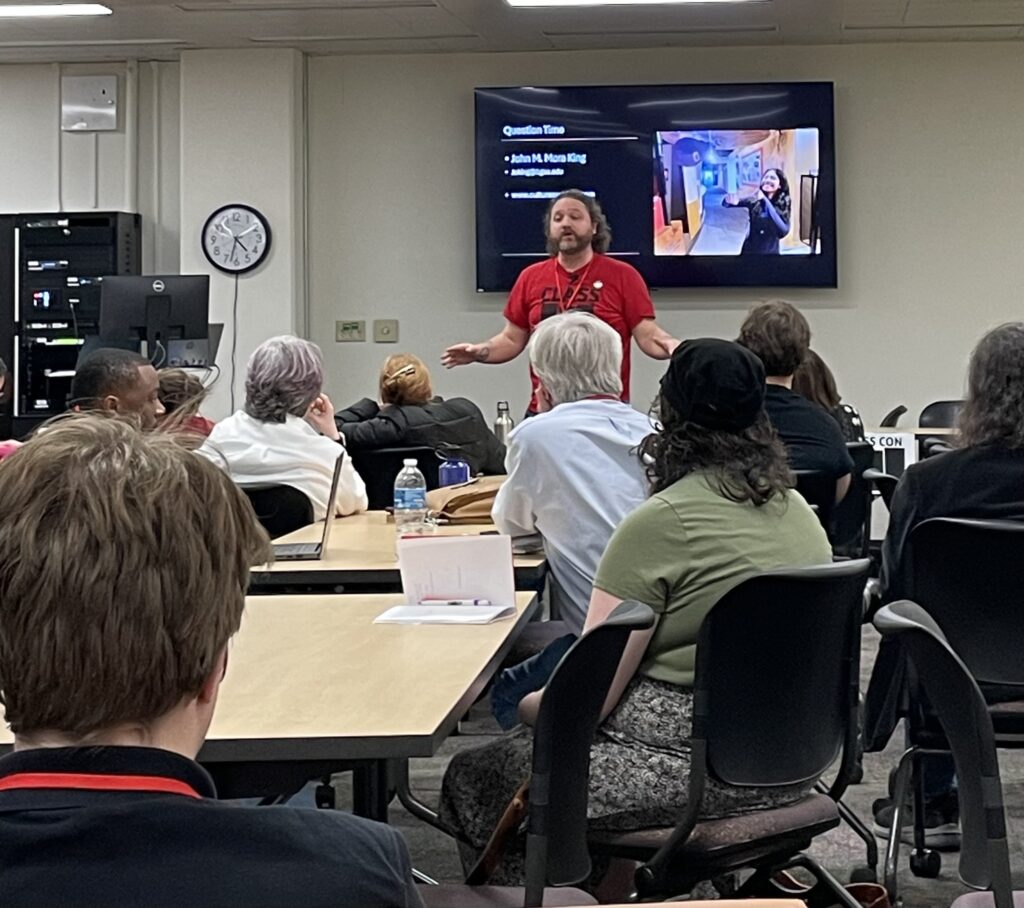
In King’s research, he realized the poor often are exploited, forcibly removed from homeless camps; denied food, water and life-saving measures based on their status; and imprisoned for years based on their status.
“Historically, the U.S. has put a lot of effort into erasing people,” he said, citing that between 1929 and 1974 more than 7,000 poor and black residents in North Carolina were sterilized “to save on social programs and breed out groups they didn’t like.”
Today, in 14 states, King said families who are enrolled in public welfare and who do not pay court fees can have their children taken and put into foster care. “That’s the crime, not having money,” he said, calling all of the examples “genocide committed against the poor and homeless in the United States.
“The anxiety of oppressive laws and policies, working way too much and still not being able to pay the bills has crushed us into believing that this is a normal state of being,” King said. “It’s easy to see why we think it’s impossible to stop these atrocities when capitalist fatigue has crushed us into submission.”
There is a drive to push wealth even further into the hands of a few people away from the majority, which is elevating the obvious economic divide in the U.S.
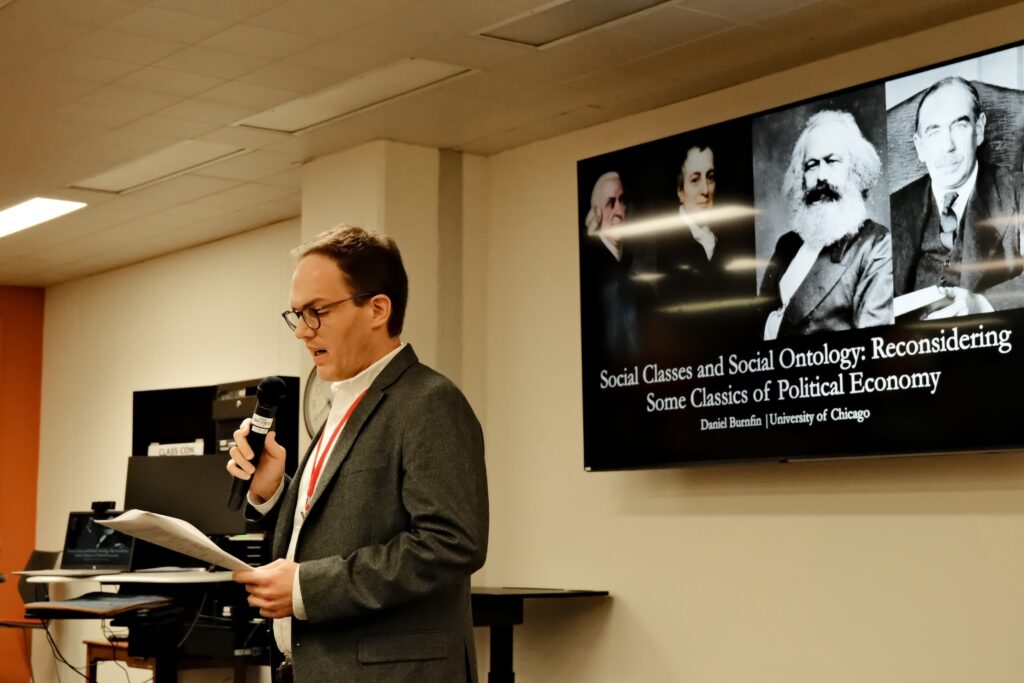
“Class Con has the potential to significantly impact the study of class in cultural studies and academia more broadly, by providing a platform for researchers and scholars to share their work and build a community,” he said.
Continually discussing the issues of class can help change the existing mindset.
“We have built a wonderful community and hopefully a community of change,” King said. “It’s difficult work, but I feel it is more important than ever to study and discuss what is happening to the poor in America.”
For more information, visit the Class Con website at https://www.bgsu.edu/arts-and-sciences/cultural-and-critical-studies/news-events/class-con.html or view the presentations on YouTube at https://www.youtube.com/@RBA-BGSU

